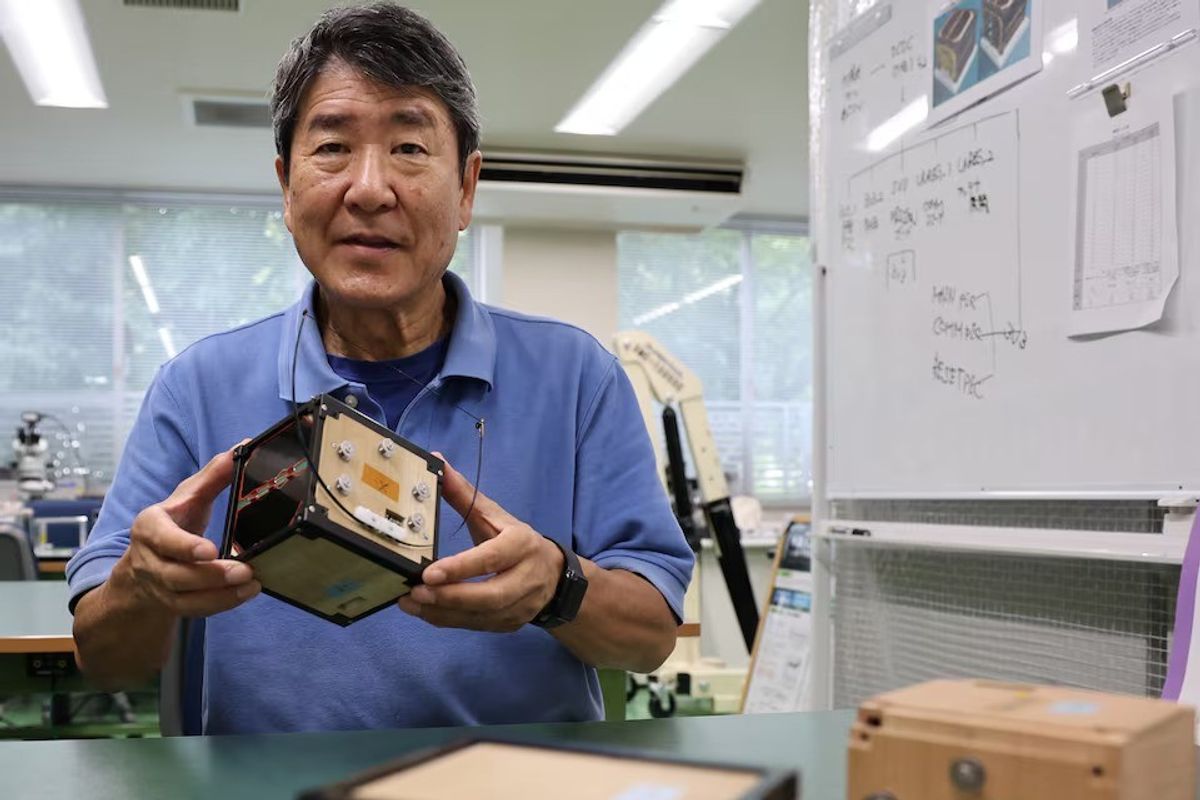World's first wooden satellite launched into space
Its wooden material is designed to burn up upon re-entry, reducing harmful metal particles
AFP
News Agency Partner
AFP is a renowned international news agency, delivering comprehensive and reliable reporting on global events, trends, and issues.

World's first satellite made from wood, named LignoSat, developed by scientists at Kyoto University and logging company Sumitomo Forestry, Japan, May 28, 2024
AFP
Wooden satellite, LignoSat, launched on a SpaceX rocket to the ISS
LignoSat is a 10 cm box-like satellite, sent in a container by Japan’s space agency
Once in space, it will test its strength in extreme conditions, sending data back to researchers
The world's first wooden satellite has blasted off on a SpaceX rocket, its Japanese developers said Tuesday, part of a resupply mission to the International Space Station.
Scientists at Kyoto University expect the wooden material to burn up when the device re-enters the atmosphere -- potentially providing a way to avoid generating metal particles when a retired satellite returns to Earth.

These particles may negatively impact both the environment and telecommunications, the developers say.
Each side of the box-like experimental satellite, named LignoSat, measures just 10 centimeters (four inches).
It was launched on an unmanned rocket from NASA's Kennedy Space Center in Florida, Kyoto University's Human Spaceology Center said.
The satellite, installed in a special container prepared by the Japan Aerospace Exploration Agency, "flew into space safely", it said in a post on X.
A spokeswoman for LignoSat's co-developer Sumitomo Forestry told AFP the launch had been "successful".
It "will arrive at the ISS soon, and will be released to outer space about a month later" to test its strength and durability, she said.
Data will be sent from the satellite to researchers who can check for signs of strain and determine if the satellite can withstand extreme changes in temperature.
"Satellites that are not made of metal should become mainstream," Takao Doi, an astronaut and special professor at Kyoto University, said at a press conference earlier this year.










Comments
See what people are discussing